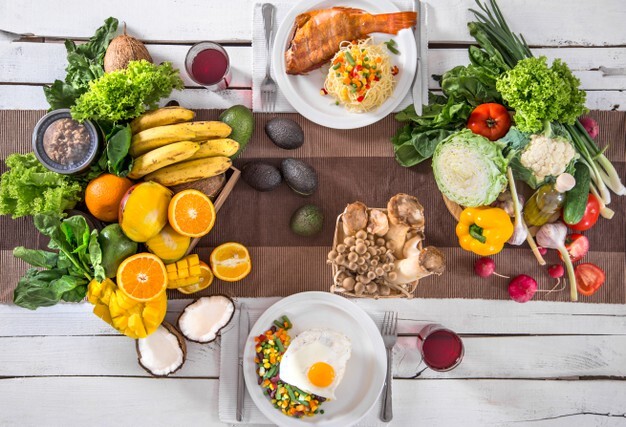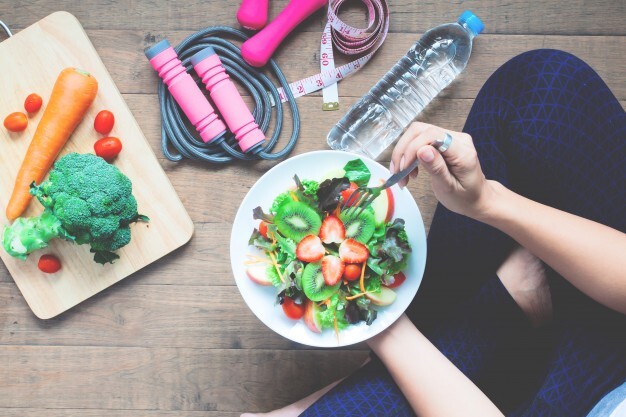You don’t have to be pregnant for starting a healthy eating habit. But you can follow a healthy diet before conceiving which will help to boost your fertility, lower the risk of birth defects and even reduce your chances of developing preeclampsia during pregnancy.
Pre-conception nutrition is an essential part of preparing for pregnancy. Factors such as a woman’s weight compared with her height and what she eats can play an influential role in a mother’s health during pregnancy and the health of her baby.
Key nutrients to eat when you’re trying to conceive
As a future mom to be, you need to have a mix of healthy foods that are packed with nutrients, which includes the following nutrients and proteins.
Folic acid/folate
Folic Acid or Folate is a B Vitamin(B9) and is one of the most important nutrients you can take before, during, and even after pregnancy. As per the Centers for Disease Control and Prevention(CDC), a woman should take 400 mcg(micrograms) of folic acid daily for at least one month before getting pregnant. Folic Acid is also helpful in preventing the birth defects like spina bifida and anencephaly.
Folic acid is hard to find in our daily food, so you should make sure your prenatal vitamin contains 400 to 600 mcg.
It is available in the following foods
- Leafy green vegetables- Green and leafy vegetables include spinach, broccoli, etc.
- fortified cereals – Daily breakfast cereals that will have all recommended nutrients.
- Oranges and strawberries – These are so yummy, they’re easy to incorporate into your diet!
- Beans and nuts – Just try not to consume too many of these at once, since they can add to the digestive issues you may already be dealing with.
Calcium
Calcium is vital to keep your reproductive system functioning smoothly and may even help you conceive faster. It is advised to have about 1,500 mg of calcium.
You can have the following food items to increase the calcium level
- Milk – The most common and rich source of calcium is milk, one cup of 1 percent milk contains 305 milligrams (mg). Additionally that it contains vitamin D.
- Yogurt – Around one cup of plain, low-fat yogurt contains around 415 mg per serving.
- Cheese- Serving of part-skim mozzarella contains 333 mg of calcium, the same-sized serving of cheddar contains 307 mg, and one cup of 1 percent milkfat cottage cheese contains 138 mg.
- Kale & Broccoli-Vegetables like these is good non-dairy sources of calcium.
Iron
Iron is a vital component one should consume during the pre-pregnancy stage. As per the study, women need about 18 mg per day, but your daily iron requirement will increase to 27 mg per day once you’re pregnant.
Some of the Good sources of iron-rich food are
- Fortified breakfast cereals -One serving of fortified breakfast cereal contains 18 mg of iron.
- Lean Meats – Beef, Chicken, and turkey contain around 1 mg of iron per 3 oz. serving.
- Spinach – This is a very good source of iron, 1/2 cup of boiled and drained spinach contains 3 mg per serving — about 17 percent of your daily recommended intake.
Omega 3 fatty acids
This is one of the required fat you must include in your pre-pregnancy diet. That’s because omega-3 fatty acids may help regulate key ovulation-inducing hormones and increase blood flow to the reproductive organs.
Some of the food items in which you can find Omega -3s are
- Seafood -Salmon, anchovies, sardines, and herring, are some of the seafood which has high and good sources of omega-3s.
- Grass-fed beef- Beef from grass-fed cows contains higher levels of omega-3s
- Nuts and seeds – Walnuts, flaxseed, and chia seeds contain omega-3s.
Fiber
Adding fiber to your diet will keep you feeling full for longer. If you’re planning to get pregnant, increasing your fiber intake by 10 grams per day may lower your risk of developing gestational diabetes by 26 percent, according to a 2006 study.
Some of the food items which contains a high level of fibers are
- Whole grains – Wheat bread, bulgur, oats, and quinoa all contain fiber.
- High fiber cereals – Having a cereal-rich breakfast can give enough amount of fiber.
- Fruits and vegetables – Peas, corn, and broccoli are all good sources, as are pears, blueberries, raspberries, and peaches.
- Beans and Legumes – Lentils, black beans, kidney beans, lima beans, split peas, and chickpeas are rich in fiber.
Proteins
Proteins are equally important to add to the pre-pregnancy diet plan. Stick to two to three servings a day, one of which should be plant-based
Foods that are packed with protein include
- Fish – Salmon fish is rich in Protein as well as packed with a dose of omega-3 fatty acids
- Lean meats – Poultry (like chicken or turkey), lean beef are all good options.
- Black Beans – One cup contains 15 grams of protein. Use them in a breakfast, lunch, or dinner choice is yours.
Connect with us to get a customized diet plan for pre-pregnancy nutrients. We help you get the right diet plan that will suit your body.


